第102章 III(4)
But as a rule the leisure hours of that active life were occupied with recreations of a less intangible quality than the study of literature or the appreciation of art. Victoria was a woman not only of vast property but of innumerable possessions. She had inherited an immense quantity of furniture, of ornaments, of china, of plate, of valuable objects of every kind; her purchases, throughout a long life, made a formidable addition to these stores; and there flowed in upon her, besides, from every quarter of the globe, a constant stream of gifts. Over this enormous mass she exercised an unceasing and minute supervision, and the arrangement and the contemplation of it, in all its details, filled her with an intimate satisfaction. The collecting instinct has its roots in the very depths of human nature; and, in the case of Victoria, it seemed to owe its force to two of her dominating impulses--the intense sense, which had always been hers, of her own personality, and the craving which, growing with the years, had become in her old age almost an obsession, for fixity, for solidity, for the setting up of palpable barriers against the outrages of change and time. When she considered the multitudinous objects which belonged to her, or, better still, when, choosing out some section of them as the fancy took her, she actually savoured the vivid richness of their individual qualities, she saw herself deliciously reflected from a million facets, felt herself magnified miraculously over a boundless area, and was well pleased. That was just as it should be; but then came the dismaying thought--everything slips away, crumbles, vanishes; Sevres dinner-services get broken; even golden basins go unaccountably astray; even one's self, with all the recollections and experiences that make up one's being, fluctuates, perishes, dissolves... But no! It could not, should not be so! There should be no changes and no losses! Nothing should ever move--neither the past nor the present--and she herself least of all! And so the tenacious woman, hoarding her valuables, decreed their immortality with all the resolution of her soul. She would not lose one memory or one pin.
She gave orders that nothing should be thrown away--and nothing was. There, in drawer after drawer, in wardrobe after wardrobe, reposed the dresses of seventy years. But not only the dresses --the furs and the mantles and subsidiary frills and the muffs and the parasols and the bonnets--all were ranged in chronological order, dated and complete. A great cupboard was devoted to the dolls; in the china room at Windsor a special table held the mugs of her childhood, and her children's mugs as well. Mementoes of the past surrounded her in serried accumulations. In every room the tables were powdered thick with the photographs of relatives; their portraits, revealing them at all ages, covered the walls; their figures, in solid marble, rose up from pedestals, or gleamed from brackets in the form of gold and silver statuettes. The dead, in every shape--in miniatures, in porcelain, in enormous life-size oil-paintings--were perpetually about her. John Brown stood upon her writing-table in solid gold. Her favourite horses and dogs, endowed with a new durability, crowded round her footsteps. Sharp, in silver gilt, dominated the dinner table; Boy and Boz lay together among unfading flowers, in bronze. And it was not enough that each particle of the past should be given the stability of metal or of marble: the whole collection, in its arrangement, no less than its entity, should be immutably fixed. There might be additions, but there might never be alterations. No chintz might change, no carpet, no curtain, be replaced by another; or, if long use at last made it necessary, the stuffs and the patterns must be so identically reproduced that the keenest eye might not detect the difference. No new picture could be hung upon the walls at Windsor, for those already there had been put in their places by Albert, whose decisions were eternal. So, indeed, were Victoria's. To ensure that they should be the aid of the camera was called in. Every single article in the Queen's possession was photographed from several points of view. These photographs were submitted to Her Majesty, and when, after careful inspection, she had approved of them, they were placed in a series of albums, richly bound. Then, opposite each photograph, an entry was made, indicating the number of the article, the number of the room in which it was kept, its exact position in the room and all its principal characteristics. The fate of every object which had undergone this process was henceforth irrevocably sealed. The whole multitude, once and for all, took up its steadfast station. And Victoria, with a gigantic volume or two of the endless catalogue always beside her, to look through, to ponder upon, to expatiate over, could feel, with a double contentment, that the transitoriness of this world had been arrested by the amplitude of her might.